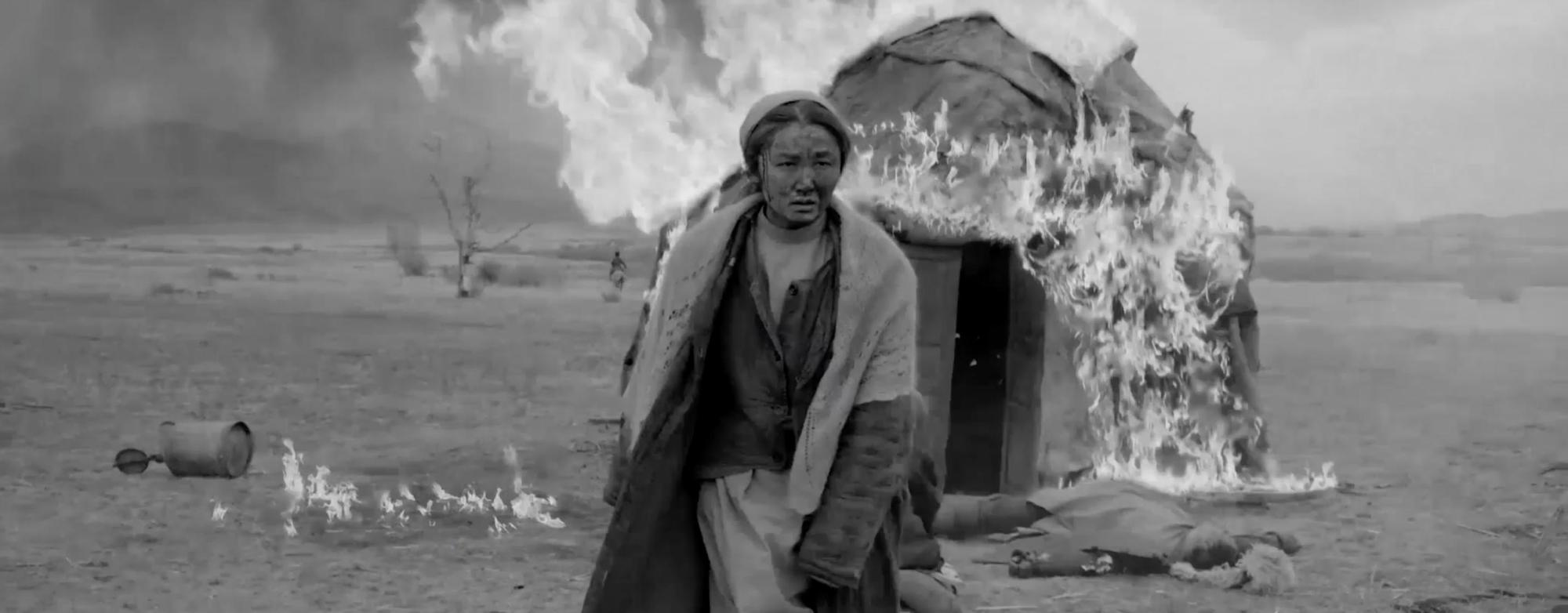
- Golden Globe Awards
The Crying Steppe (Kazakhstan)
The Crying Steppe is a film based on real events that happened in the early years of the Soviet communist regime, when artificially imposed hunger on the native population of Kazakhstan during the 1920s and 1930s cost the lives of 8.5 million people – 70% of native Kazakhs. The Great Famine was organized by the ruling Bolsheviks. This tragedy eventually forced 1.5 million Kazakhs to leave their native homeland. Those who survived machine gun massacres by Soviet troops while crossing the border, ended up in neighboring China, where their descendants still live.This is the first time ever that a feature film has so graphically depicted one of the most catastrophic periods in the history of Kazakhstan, a country which, unknown to many people, has suffered a number of tragic and shocking events throughout its history. The events depicted in the film have been kept a secret from the world until now. At a time when wheat grains were more expensive than human life, the so-called Golodomor, or “murder by hunger” affected many of the Soviet Republics besides Kazakhstan, including Ukraine, Bashkiria, Tatarstan, Azerbaijan, Armenia and even Russia itself, with over 47 million Soviet people suffering death or acute malnutrition during the ten years of the artificially engineered famine.The film tells the story of a Kazakh eagle hunter named Turar (Akylkhan Almassov) and his wife Nuriyo (Saazhan Kulymambetova) who overcome fear of death and despair in an attempt to save their suffering family and other inhabitants of their village from dying of hunger during the tragic and heartbreaking events occurring in the Kazakh Steppe.The director and screenwriter of the film, Marina Kunarova, was born on May 27, 1973, in the city of Atyrau, Atyrau region. An ethnic Kazakh, she graduated from the Almaty Technological Institute and the Institute of Management and Consulting, and also attended special film directing courses in Moscow. Marina’s directorial debut was very successful – her drama 999 won the Best Foreign Film prize at the LA Femme International Film Festival for Women Filmmakers in Los Angeles in 2010, and was also noticed at other film festivals.The Crying Steppe is an imaginary story interwoven with the stories of real people who survived this terrible human tragedy, says the director. “What was really terrible about that time was the death of spirituality. The crackdown on free thinking and the annihilation of ethnic culture and human values led to spiritual starvation and the killing of the soul. And the fear still remains – it has changed its form but is still very much alive. The film raises the question of ‘why?’ Why did our forefathers have to pay such a terrible price? And why, up until now, have we been afraid to admit what really happened and, instead, conceal our tragic history from the rest of the world? Even today, this topic is still prohibited in our country. I would like to express my sincere thanks and and gratitude to two organizations, the American Relief Administration (ARA) and the American Jewish Joint Distribution Committee (JDC) who helped save more than 10 million people from starving to death during that period, and whose work was never acknowledged by the communist regime of the USSR.”For the producer of the film, Yernar Malikov, The Crying Steppe was a passion project.“The making of this film was a deeply personal experience for me,” he says. “It was so important for me to ensure that these tragic events were brought to the attention of a wide global audience on the big screen, that I even sold a number of (my) properties to ensure that this was achieved.”Besides participating in the Golden Globe competition for Best Foreign Language Film Award The Crying Steppe is Kazakhstan’s submission for the International Feature Academy Award.

